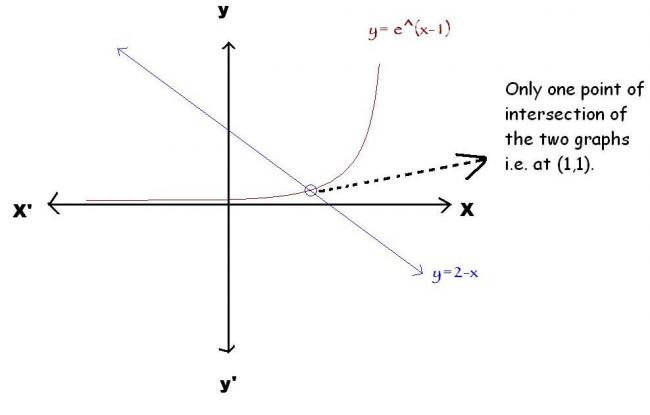one can also use Rolle's theorem. If there is, apart from x=1, any other root, say α, then consider f(x)=ex-1+x-2 in the interval [1, α]. We see that in this interval f(x) is continuous and in the interval (1, α) f(x) is differentiable. Further, f(1)=f(α)=0. Hence, by Rolle's theorem, there should exist at least one point c in the interval (1, α) where f'(c)=0. But that's a contradiction since f'(x)>0.
the equation e^(x-1)+x-2=0 has how many roots ??????????
-
UP 0 DOWN 0 0 2

2 Answers
omkar
·2010-10-21 00:07:46
Abhisek
·2010-10-21 02:10:26
I never heard of Rolle's Theoreme yet so you can simply do it by drawing the graphs..
ex-1 + x - 2 = 0
or, ex-1 = 2 - x
Sketch the graphs of f(x) = ex-1 and f(x)=2-x...

Hence only one real root of the given equation...